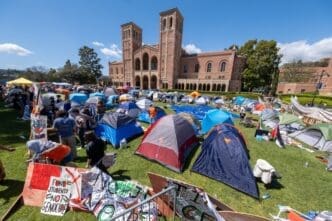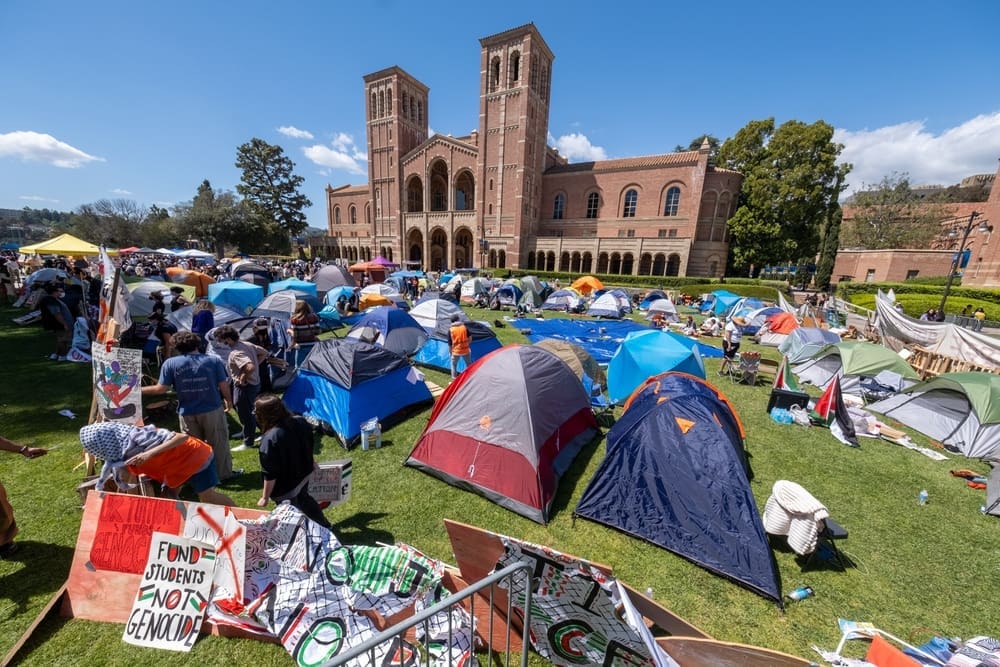A recent intensification of measures against foreign students in the United States has raised significant concerns among colleges and universities. Educational institutions assert that the current administration is deploying new methods with ambiguous justifications to expel some international students. This development is feared to deter foreign students from considering the U.S. as a study destination.
Students who have had their visas revoked are being directed by the Department of Homeland Security to leave the country immediately. This marks a departure from previous practices, which often allowed students to remain and complete their studies. Instances of students being targeted include those involved in pro-Palestinian activism, minor criminal infractions, or even traffic violations, leaving many puzzled over their breach of regulations.
At Minnesota State University in Mankato, five international students had their visas revoked for unspecified reasons. University officials discovered the revocations during a status check in an international student database following the detention of a Turkish student at the University of Minnesota. The State Department attributed the detention to a drunken driving conviction. In a communication to the campus, the university’s president described the current times as unprecedented and challenging.
Enforcement has intensified following President Trump’s campaign pledge to deport foreign students involved in pro-Palestinian protests. Federal agents have begun by detaining prominent activist Mahmoud Khalil, a Columbia graduate student. The Secretary of State commented that students are being targeted for protest involvement or potential criminal activities.
In recent weeks, the scope of this enforcement appears to have expanded. Educational institutions nationwide have reported international students losing their entry visas and, in some cases, their legal residency status without prior notice. Affected universities include Arizona State, Cornell, North Carolina State, the University of Oregon, the University of Texas, and the University of Colorado. While some students are attempting to leave the country voluntarily, others, such as those at Tufts and the University of Alabama, have faced detention by immigration authorities.
In a shift from past procedures, the federal government is now directly altering students’ records, bypassing the usual college communication channels. This sudden enforcement has left universities struggling to assist affected students. In the past, students with revoked visas could maintain legal residency status and continue their studies, needing visa renewal only if traveling abroad. Now, a growing number of students face terminated legal status, increasing their vulnerability to arrest.
At North Carolina State University, two Saudi Arabian students departed the U.S. after their student status was revoked. The university is working to facilitate their academic progress remotely. According to a roommate of one affected student, the sudden termination came without explanation, despite the student’s lack of political involvement.
Checks of a federal database at the University of Texas at Austin revealed two students on visas had their statuses unexpectedly terminated due to criminal record findings. Both individuals were graduates utilizing a professional experience option post-coursework. Despite full-time employment and compliance with visa requirements, their legal status was revoked.
Some students have faced visa revocations under a seldom-invoked law that bars noncitizens whose presence could have serious negative foreign policy implications. The administration’s recent actions, partly justified by a January order targeting campus antisemitism, have affected students with no apparent political links. Visa revocations have occurred over minor infractions, which would not have warranted such scrutiny previously.
As the situation unfolds, the Association of Public and Land-grant Universities is seeking a meeting with the State Department. Although the number of visa revocations remains unclear, educational institutions worry about the potential chilling effect on international exchange and academic collaboration.
Colleges are increasingly conducting student interviews and reviewing social media to uncover connections to political activism. Some students, particularly from regions such as the Middle East and China, have been affected, but no consistent pattern of targeting has emerged.
America’s reputation as a premier destination for international scholars is at risk. Institutions have long benefited from the tuition revenue and innovative research contributions of foreign students. However, these students have alternative educational opportunities, and it is crucial for the U.S. to not take their presence for granted.
The Societal Shift
Local communities that rely on the presence of international students for cultural exchange and economic activity might experience adverse effects due to reduced diversity and spending.
The crackdown on foreign students might discourage international scholars from studying in the U.S., impacting the diversity and global perspective within educational institutions.
Universities could face financial repercussions due to the potential decrease in international student enrollment, affecting tuition revenue and funding for research projects.
The abrupt revocation of visas and residency status could lead to legal challenges and strain resources as institutions seek to support affected students.
The broader implications for U.S. foreign policy could affect international relations and the country’s reputation as a welcoming environment for global academia.














